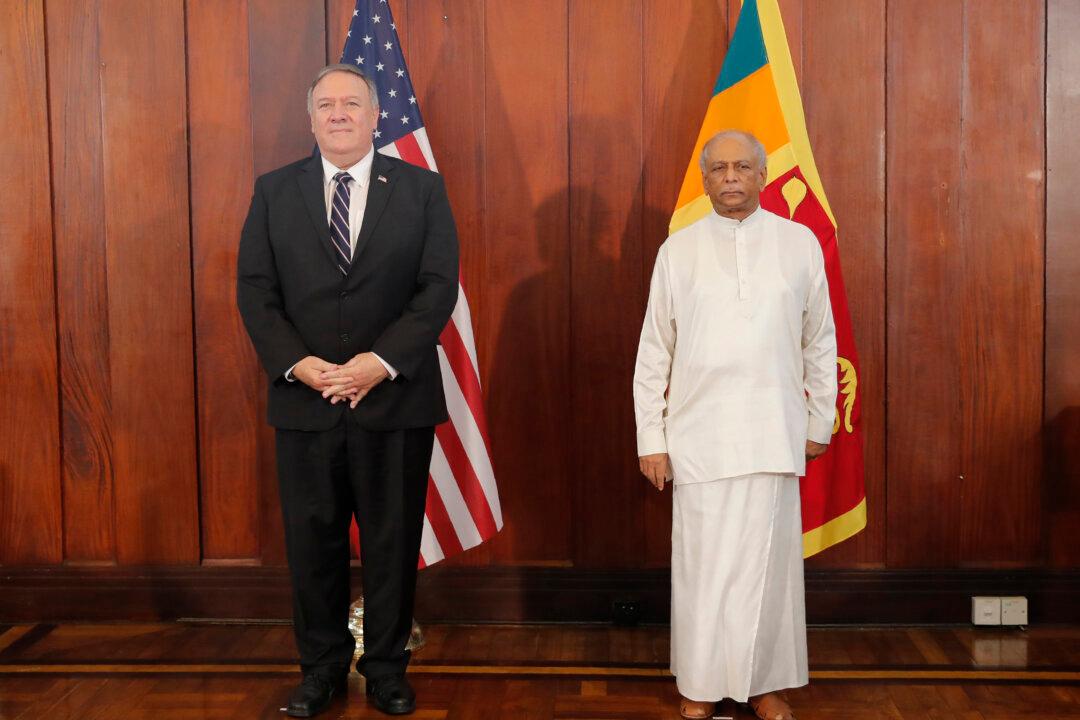U.S. Secretary of State Mike Pompeo warned Sri Lanka on Wednesday against the Chinese Communist Party’s predatory business practices, as the top U.S. diplomat kept up tough criticism of the Chinese regime on a tour of South Asia.
Pompeo arrived in Sri Lanka from India as part of a four-leg tour aimed at bolstering allies against China’s increasing political and military inroads in the region in recent years. In contrast to India, which is locked in a military stand-off with China and was the first stop on Pompeo’s trip, Sri Lanka is a close ally of Beijing.





